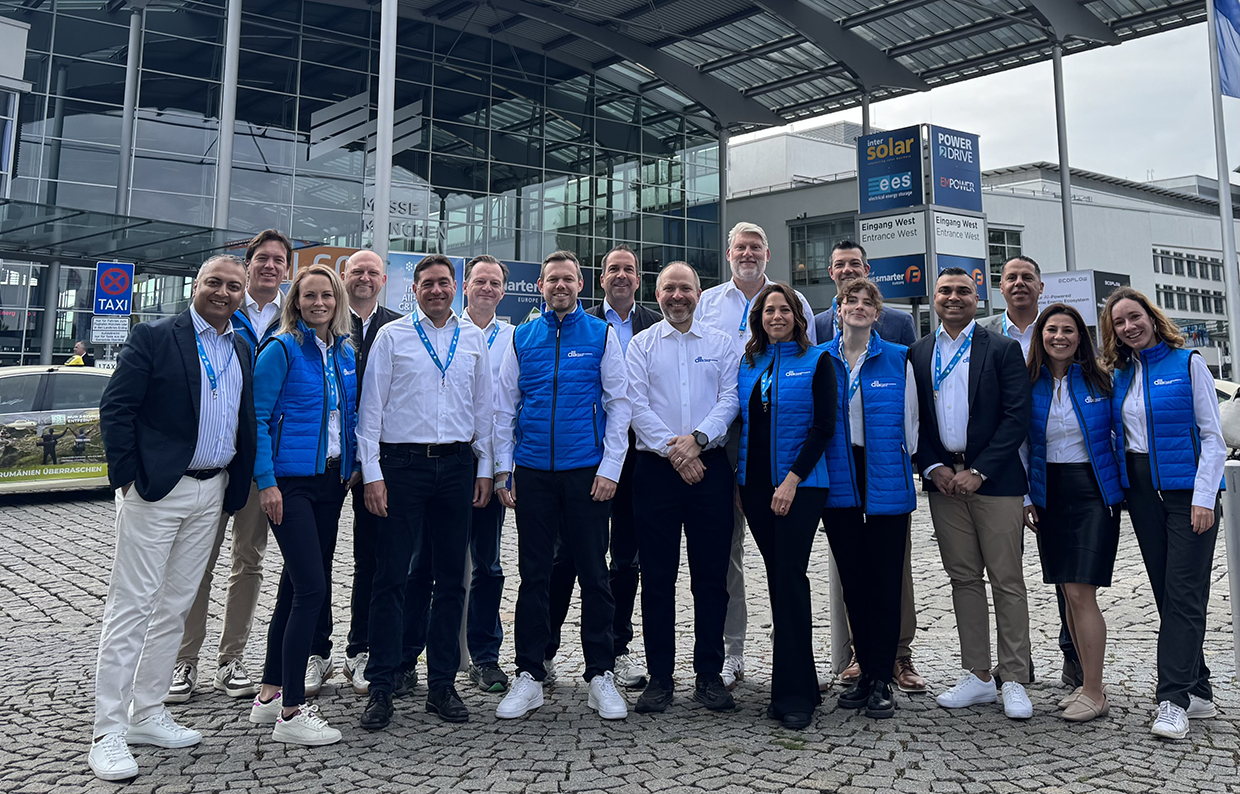Last week DLL attended The smarter E Europe tradeshow held on May 7-9, 2025, at the ICM in Munich. This premier event, a key gathering for industry leaders and decision-makers in renewable energy, gave DLL the opportunity to engage with industry leaders and reinforce its commitment to accelerating the global energy transition.
The smarter E Europe serves as a central hub for the energy industry, integrating multiple exhibitions and conferences that cover the entire spectrum of the energy value chain across Europe. It emphasizes the convergence of electricity, heat, and transportation sectors, highlighting the necessity for integrated solutions in achieving a sustainable energy future.
During the event we met with our existing partners and multiple industry players who were interested in our tailored financing programs designed to support manufacturers, system installers, and their customers in adopting renewable energy technologies.
DLL’s Key Insights from The smarter E Europe
During the tradeshow, several themes resonated with DLL’s Energy transition mission and offerings:
Solar Technologies:
Next-gen solar panels are becoming more adaptable and efficient. New models are compact and lightweight, ideal for varied surfaces while maintaining strong output and durability. Bifacial panels, capturing sunlight on both sides, are seeing widespread interest. Floating solar systems are emerging as practical solutions in land-scarce regions. High-efficiency perovskite-silicon tandem cells (30%+ efficiency) are in the pipeline but remain years away from commercial readiness.
Battery Energy Storage Systems (BESS):
Safety and cooling advancements are front and center, with liquid cooling systems being the most preferred option nowadays. Hybrid cooling systems have recently hit the market as an alternative method that allows for energy savings when external temperatures are favorable. While solid-state batteries are not yet commercially available, they are eagerly anticipated and expected to revolutionize the future of energy storage. LFP batteries (a type of lithium-ion battery) dominate due to thermal safety and long life, while sodium-ion options gain traction for their cost-effectiveness and improved safety profile. Integration of EV charging with BESS, often alongside photovoltaic (PV), is creating new bundled energy solutions.

DLL Energy Transition team
Grid Infrastructure:
AI-driven remote monitoring is key to predictive maintenance, downtime reduction, and real-time performance optimization. This trend supports smarter, more resilient grid operations essential for scaling renewables.
Ecosystem Integration:
The focus is shifting from individual technologies to integrated systems. Combining solar, wind, and storage solutions is critical for creating reliable, financially viable clean energy ecosystems. Discussions emphasized the need for comprehensive financial solutions to support a stable and reliable energy supply.
How can the financial sector support Energy Transition growth?
The transition to renewable energy is not solely a technological endeavor, as it also requires substantial financial investment and innovative financing models. The smarter E Europe conference emphasized the growing intersection between the energy and financial sectors:
- Investment Opportunities: The shift towards renewable energy presents significant investment opportunities. Despite recent declines in venture and growth equity investments in climate tech, the market has shown resilience, outperforming broader venture capital trends.
- Insurance plays a critical role in mitigating risks associated with climate-related disasters, which are becoming more frequent and severe. Addressing these challenges is vital to prevent potential property market crashes and to ensure the stability of investments in renewable energy infrastructure.
- ESG Considerations: Environmental, Social, and Governance (ESG) factors are increasingly influencing investment decisions. European business schools are integrating sustainability into their curricula, reflecting a broader trend towards prioritizing ESG considerations in the financial sector. This shift is fostering a new generation of business leaders equipped to navigate the complexities of sustainable finance.
